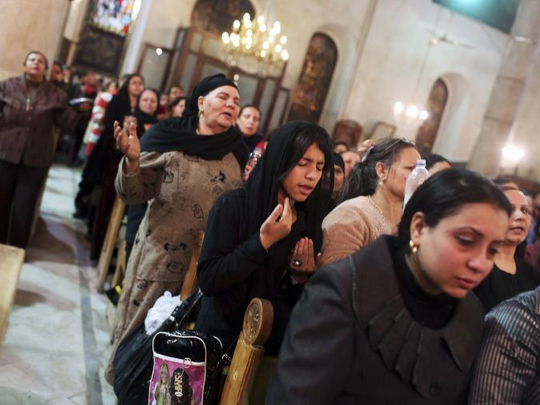
Cairo: For Coptic Christian Nadi Salib, going to occupied Jerusalem was a dream of a lifetime that only came true last year. Salib, now 56, was one of thousands of Copts who have made the pilgrimage to the Israeli-occupied city in recent years despite a decades-old ban from Egypt’s Coptic Church.
“It was a joy unmatched by any other thing in this life to go to the Holy Land and visit the places blessed by Jesus Christ,” said Salib.
After his return, Salib was punished by the Church by being deprived from receiving Holy Communion for violating the ban imposed by Coptic Pope Shenouda III, who died in 2012.
“This penalty was harsh to me. But making the pilgrimage to the Holy Land is far greater than any punishment. It’s a journey made for obtaining the Lord’s contentment and blessings.”
Air Sinai, a subsidiary of the national carrier, EgyptAir, started earlier this week flights to transport Christians of different churches in Egypt to Tel Aviv. The airlift continues until April 12, which marks the Coptic Easter, according to the Orthodox calendar followed by some Eastern churches.
The pilgrims this year include around 5,500 Coptic Christians.
Copts make up the majority of Egypt’s 10 million Christians. Catholics, Anglicans and protestants form a minority.
In late 1970s, the then pontiff Shenouda III of the Coptic Church banned Coptic Christians from visiting occupied Jerusalem until the Palestinian-Israeli conflict is resolved. His successor Pope Tawdross II, who was enthroned in 2012, has followed the same stance. The incumbent pontiff renewed the ban this week.
“The Church’s stance on visiting Jerusalem is has not changed,” said Bishop Boulice Halim, the spokesman for the church. “Copts will only enter Jerusalem with their Muslim brethren. There are penalties for the violators, including deprivation from Holy Communion and other spiritual rituals.” Holy Communion is a rite, which most churches consider a sacrament.
Egypt was the first Arab country to sign a peace treaty with Israel in 1979. However, there has since been public rejection of having normal ties with Israel.
Egyptian Christians wishing to go on pilgrimage to the Holy Land have to get approval from security authorities and respective churches. Apart from the Coptic Church, Egypt’s other churches issue related permits, considering the decision to visit occupied Jerusalem a matter of personal freedom.
Ebrahim Shukrallah, a manager of a tourism agency in Cairo arranging trips to the Holy Land, said Coptic Christians continue to make the occupied Jerusalem pilgrimage despite the ban.
“The Copts who decide to visit Jerusalem do nothing wrong,” Shukrallah said. “They dream of visiting the holy cities and attending the Easter celebrations there. Christians’ eagerness to go to Jerusalem is as strong as the Muslims’ eagerness to go to Makkah,” he said, referring to the Saudi city, home to Islam’s holiest site.
The week-long trip to occupied Jerusalem and other Palestinian territories costs around 10,000 Egyptian pounds (about Dh4,545), according to Shukrallah.
“The biggest beneficiaries of these trips are Palestinians themselves because the visitors show solidarity with them. Visiting a prisoner does not mean normalising relations with the jailer,” he said, quoting Palestinian President Mahmoud Abbas as addressing a recent Arab summit where he called on Arabs to visit occupied Jerusalem.
Palestinians want occupied East Jerusalem to be the capital of their future state.












